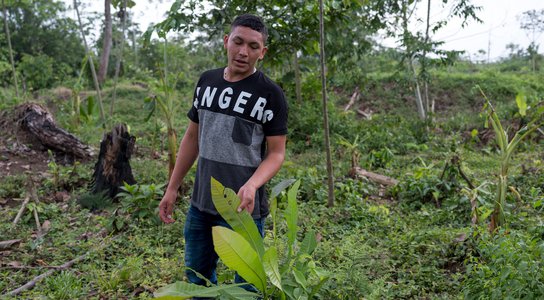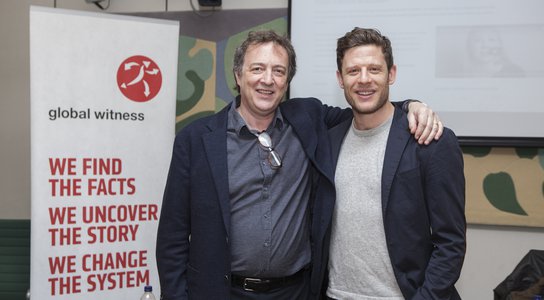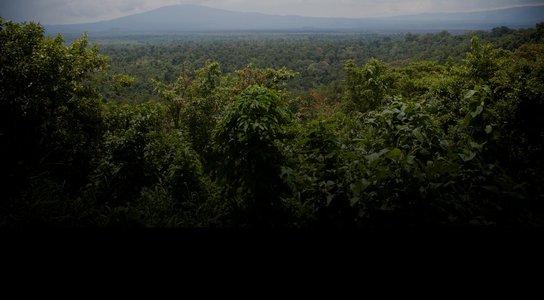In 2018, here at Global Witness we said a resounding no to secret
companies, secret deals that drive environmental destruction and secret profits
from mining that fund conflict.
Watch the film for highlights and to hear from my colleagues how their work to find the facts and expose the story has led to change for communities and the environment around the world – then please share far and wide to add your voice and say No to Secrecy!
To stand with us in this work, please make a donation today. It is only through the generosity of our supporters that we can confidently plan such long-term, ambitious campaigns for change.
No to secret deals – exposing corruption in the oil industry
In
March, we revealed how US
oil giant Exxon purchased a Liberian oil block
tainted by corruption. As the company put it, the block had “issues regarding
US anti-corruption laws,” including possible ownership by former government
officials. But Exxon bought it anyway.
That means that money that should have been available to enable the Liberian government to meet basic human needs like education and health care may have ended up padding private bank accounts instead.
For years, US oil companies have tried to kill a law intended to stop them from signing corrupt oil deals around the world. Through this campaign, we called on the US government to protect this oil and gas transparency law – known as Section 1504 of Dodd-Frank. It’s laws like these that help us uncover deals done in the notoriously corrupt and opaque oil and gas sector.
No to secret companies – tackling the UK’s Dirty Money Problem
On the other side of the Atlantic, we made sure the UK government could no longer ignore the problem of dirty money flowing through UK tax havens and hidden in its property market.

The moment the team found out many years of work had paid off and the UK government would make the Overseas Territories open up.
First, we exposed how 86,000 properties across the UK are owned by anonymous companies – allowing criminals to stash money from corrupt dealings in the UK property market.
Next, as the wider implications of the Skripal poisonings in Salisbury were becoming clearer, we showed the startling amount of Russian money flowing to the British Overseas Territories – including the proceeds of crime and corruption.
Days later, the UK government announced that the Overseas Territories – places like the British Virgin Islands and the Cayman Islands – would have to open up, and introduce public registers of the real owners of their anonymous companies. So they wouldn’t be anonymous anymore, making it much harder for criminals and the corrupt to profit from and get away with all manner of crimes.
No to secrecy driving environmental destruction – unearthing the truth about illegal logging
In June, our investigations revealed that the European company Norsudtimber – the biggest single owner of logging concessions in the Democratic Republic of Congo (DRC) – is operating illegally on 90% of its sites.
Our findings also exposed that a global web of secrecy – made up of tax havens and shell companies listed in Liechtenstein, Dubai and Hong Kong – is facilitating the illegal trade of the timber from DRC.
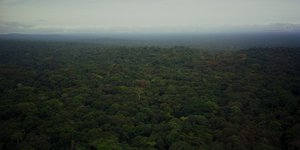
We continued our work to
protect the Congo basin’s forests, which play a critical part in regulating our
global climate.
We’re using this evidence to call on donor governments Norway and France to take steps to stop illegal logging in the DRC, which is one of our planet’s most important biodiversity hotspots and plays a critical part in regulating our global climate.
No to secret profits from mining funding conflict – revealing the everyday mineral funding Afghan insurgents
In May, we revealed how the Islamic State controls one major talc mining area in eastern Afghanistan, and have fought with the Taliban over others. And that the Taliban are making millions from the taxing the trade.
Meanwhile it is Western consumers who are the ultimate source of most of
these profits, with US and EU countries together the biggest buyers of talc
from the region.
Since then we have been working with partners to ensure that a
draft Afghan mining law provides
a foundation to escape the widespread corruption and conflict that have
made the country’s mineral wealth a source of harm, so that it can instead
benefit the people of Afghanistan.
And so much more
This is, of course, just the tip of the iceberg. We published investigations on logging in the Solomon islands, oil in South Sudan, the role of commodities traders in Brazil’s carwash scandal, golden visa schemes and much more. We analysed Malaysia’s 1MDB scandal, held our first webinar – and also squeezed in a London office move.
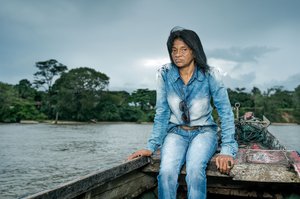
We stand with land and environmental defenders like Maria do Socorro who is campaigning with her community in Brazil. Credit: Thom Pierce | Guardian | Global Witness | UN Environment
Our annual report into the killings of people
trying to protect their land and the environment, which this year highlighted
agribusiness, including coffee, palm oil and banana plantations, as the
industry most associated with these attacks.
We continued our work on
Shell and Eni’s role in a corrupt Nigeria oil deal, giving evidence at the
trial in Italy of senior executives and exposing how the deal with the oil
giants may have lost Nigeria an estimated $6 billion in projected future revenues.
Our message to the corrupt is the same as ever: we
will find the truth, we will make it harder for you to hide and spend stolen
money, and we will make sure you are brought to justice. We are watching - and
your secrets aren’t safe.
To stand with us in this work, please make a donation today. It is only through the generosity of our supporters that we can confidently plan such long-term, ambitious campaigns for change.
